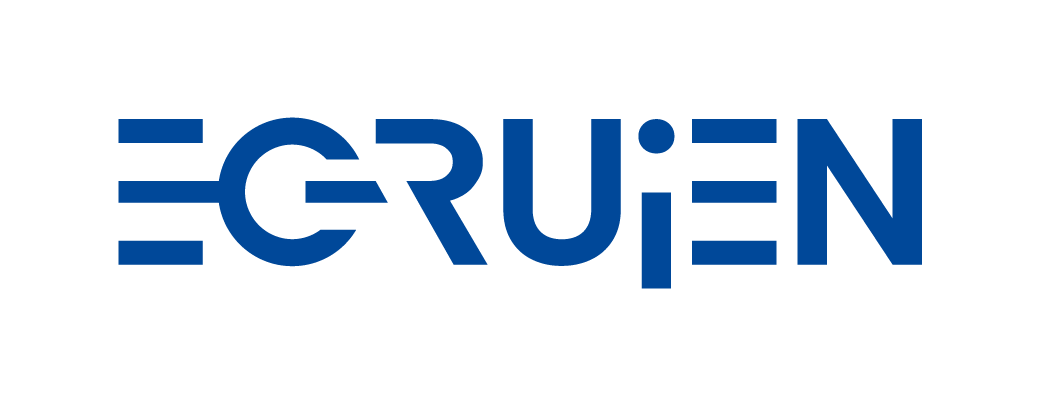EGRUiEN workpackages
Work Package 1 – Management and Coordination
Lead Beneficiary: JYU
This work package focuses on providing strong scientific leadership throughout the project. It ensures effective coordination of research activities, data collection, open science commitments, and adherence to data ethics principles. Regular monitoring will guarantee that project objectives are achieved with high quality and on schedule. In addition, WP1 facilitates smooth communication between partners and oversees the financial and administrative management of the project. It also manages communication with the European Commission.
Work Package 2 – Historical Case Studies and Theoretical Framework
Lead Beneficiary: JYU
WP2 aims to explore how local actors—including policymakers, institutions, workers, and trade unions—can influence processes of creative destruction to achieve more equitable outcomes. It examines the impact of social dialogue on local responses to transformative changes shaping the world of work through detailed historical case studies. This package also characterizes how social and economic dynamics, such as global competition, environmental policies, and corporate strategies, have historically interacted with disruptive technologies. A special focus is placed on how technological changes linked to the green transition affect local social dynamics and equality. Ultimately, WP2 establishes the theoretical foundation and research design framework for the case studies in Work Packages 3 to 8.
Work Package 3 – Social Dialogue and Transitions in the Automotive Sector
Lead Beneficiary: CU
This package generates knowledge about the automotive and heavy transport equipment production sectors across nine case countries, focusing on sector-wide industrial relations structures and the impact of ongoing transitions. It seeks to deepen understanding of bargaining and decision-making processes and how the sector responds to twin transitions. WP3 analyzes the effects of these transitions and social dialogue on social and economic outcomes for key stakeholders, and co-develops innovative strategies to adapt social dialogue for the future of work.
Work Package 4 – Social Dialogue and Transitions in the Energy Sector
Lead Beneficiary: UiO
WP4 studies the energy production sector in nine countries, concentrating on macro-level data regarding industrial relations structures and transitions' impacts. It examines sectoral bargaining and decision-making practices and their responses to twin transitions. This package also assesses how social dialogue and transitions affect stakeholders and co-produces strategies to modernize social dialogue mechanisms for the evolving world of work.
Work Package 5 – Social Dialogue and Transitions in the Transport-on-Demand/Taxi Sector
Lead Beneficiary: UdZ
WP5 investigates the transport-on-demand and taxi sectors in nine countries, gathering sector-wide macro data on industrial relations structures and transitions' effects. It examines the negotiation and decision-making processes within the sector and analyzes how transitions and social dialogue impact social and economic outcomes. Finally, it co-develops adaptive social dialogue practices suitable for the future of work in this sector.
Work Package 6 – Social Dialogue and Transitions in the Care Sector
Lead Beneficiary: European Centre
This package focuses on the healthcare, long-term care, and elderly care sectors in nine countries. It collects macro-level data on industrial relations and analyzes the impacts of transitions. WP6 delves into sectoral bargaining processes, assesses how social dialogue and transitions shape social and economic outcomes, and co-produces innovative social dialogue models tailored to future challenges in the care sector.
Work Package 7 – EU-Level Social Dialogue Coordination: Social Innovation Through Action Research
Lead Beneficiary: CELSI
WP7 addresses the project's research questions at the EU and transnational levels. It promotes inclusive and transparent participatory action research through three E-GRUiEN Mutual Learning Labs (MLLs). This work package facilitates information sharing, exchange, and peer learning among social partners, research institutions, and NGOs, fostering collaboration and innovation in social dialogue practices at the European level.
Work Package 8 – A New Social Dialogue for Europe: Comparative Analyses Across Sectors and Countries
Lead Beneficiary: UP
WP8 addresses critical knowledge gaps concerning the future role of social dialogue institutions in ensuring a fair green and digital transition. It provides a sector-based comparative analysis across Europe, examining how different institutions and bargaining strategies influence the capacity of social dialogue to foster inclusive transitions. Furthermore, this work package analyzes potential new institutional pathways for social dialogue, as proposed in WP7, offering a scientific foundation for building inclusive and resilient social dialogue structures in the context of ongoing transformations.
Work Package 9 – Dissemination, Exploitation, Communication
Lead Beneficiary: UWr
WP9 focuses on showcasing the attractiveness and impact of the project’s results to key identified stakeholders through targeted dissemination and communication activities. It designs and implements a comprehensive stakeholder engagement strategy that fosters learning and co-production of outputs using participatory methods. Additionally, WP9 ensures that dissemination and communication efforts are fully integrated into the project's broader engagement with social partners and other relevant audiences, maximizing the project’s reach and influence.
